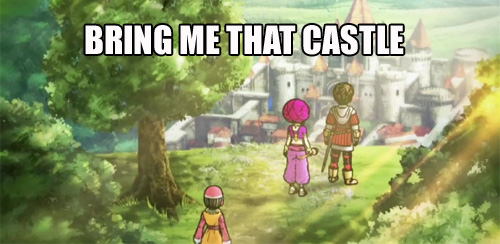The MMO market is a
fat, over-saturated sloth that occasionally shits out a sparkly
golden turd. The late nineties to early 2000s saw an exponential
explosion in the massively multiplayer industry, a time when
Everquest was at its height and hits like Runescape, Anarchy Online
and Dark Age of Camelot were brought to fruition. Fast-forward to
2011 and releases are coming thick and fast with no fewer than 10
launches from western companies and around three times that amount in
the east. Where innovation reigned back in 2002, now we're seeing a
vast number of clones and sub-par experiences within a turgid vat of
blandness. The future seems bleak for the genre. But is it? Here are
my predictions for what the future holds for MMOs.
 |
| Thou doth 'Like' this game |
1. Social will be king
Much like the genre as
a whole, the social MMO has inflated massively over the past couple
of years. Where PopCap and Zynga were once crowed rulers of the
casual game, now they're facing huge cutbacks due to the flooded
market. Social gaming has been hit hard, as predicted, and now
developers are facing reality through non-rose-tinted glasses. So why
will social still be an integral part of the genre's future? After
all, things aren't looking good for these developers. It's really the
same thing that happens when any innovation comes to pass. People
seized the opportunity for targeted gaming, with its promise of big
bucks and launched onto the bandwagon en mass. Essentially developers
are seeing that X social innovation has done well so they want to
emulate its success. Rinse and repeat and what you're left with is a
sea of badly planned, poorly produced games. I predict that after
being brought back down to earth, developers will actually start
thinking of new ways to make social MMOs relevant again. With big
names like Square Enix dabbling in the scene, it's only a matter of
time before high quality MMOs are coupled with interesting socially
targeted aspects. It will be the cull in social gaming that will
force innovation.
 |
| Blizzard's pocket change |
2. No more
subscriptions
Whereas once upon a
time every MMO was pay-to-play, now developers are realising that
they're going to make more cash by creating free-to-play experiences
coupled with micro-transactions. When Turbine made The Lord of the
Rings Online F2P, it tripled its revenue. More and more games are
finding this, from Conan to the soon-to-be-free Star Trek Online.
Even World of Warcraft took a step towards the freemium model this
summer with its 'free until level 20' initiative. It's understandable
that Blizzard is being cautious by dipping only its big hairy toe in
the pool. People are still willing to fork out a subscription fee for
the most popular MMO in the world, so Blizzard probably fears a
nosedive in profits as a result of switching to purely
micro-transactions. That being said, I think that it's inevitable
that WoW will follow suit eventually because of the stigma that may
one day be attached to a subscription-driven MMO.
3. MMORPGs will have
increasingly dynamic gameplay
Fetch
quests are thankfully going to be a thing of the past. Although they
won't disappear entirely, there will be more focus on dynamic
event-driven gameplay like Rift introduced and Guild Wars 2 intends
to perfect. MMORPG worlds will be moulded by the players themselves
and more emphasis will be put on making users feel like they're
actually making a difference in the game's story. This leads to more
meaningful player-interaction and a bigger sense of accomplishment.
Helping save a village from a dragon that can actually destroy that
village permanently is much more satisfying than killing five wolves.
An evolving, player-oriented history is the sure way to immerse users
and make them feel like real heroes.



No comments:
Post a Comment